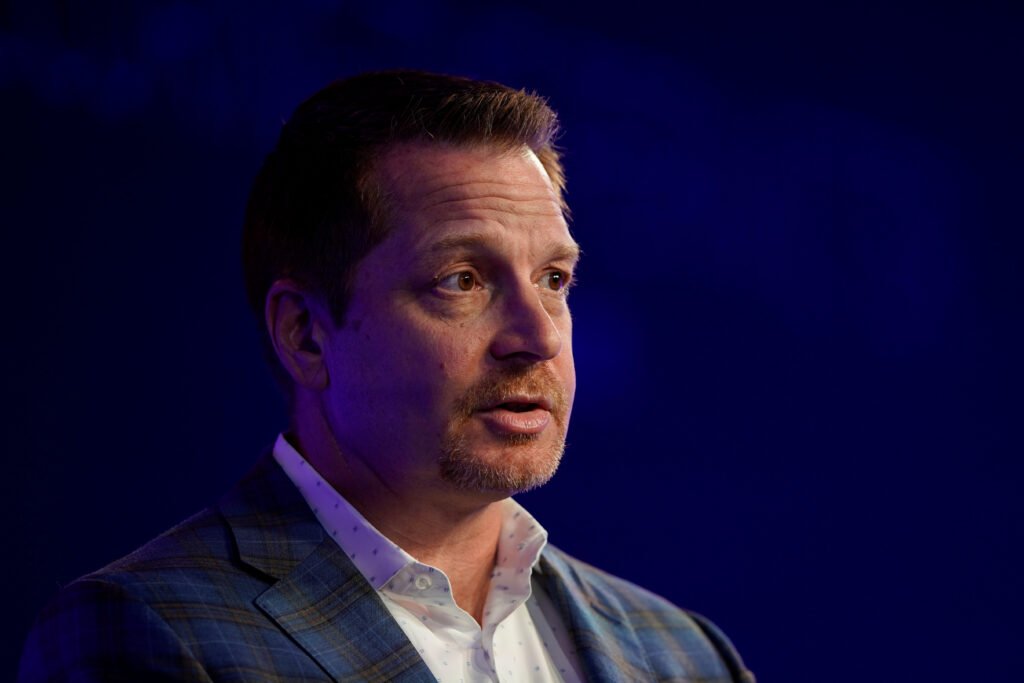The cybersecurity vendor is finding ‘enduring trust’ from many customers in the wake of the massive Windows outage in July, CrowdStrike Co-founder and CEO George Kurtz said Wednesday.

FILE PHOTO: George Kurtz, president CEO and Co-Founder at CrowdStrike speaks at the WSJTECH live conference in Laguna Beach, California, U.S. October 21, 2019. REUTERS/ Mike Blake
CrowdStrike CEO George Kurtz said Wednesday that the cybersecurity vendor has found “enduring trust” expressed by many customers in recent weeks, following the massive Microsoft Windows outage caused by the company’s defective July 19 update.
Executives revealed that multiple deals did not close as expected during CrowdStrike’s second fiscal quarter, which ended July 31, less than two weeks after the outage.
But CrowdStrike is confident that those deals will ultimately still be completed in the coming quarters, executives said during the vendor’s quarterly call with analysts Wednesday. On the whole, CrowdStrike believes that most of its customers will continue to see the benefits of working with the vendor and its highly regarded security technologies, Kurtz said.
As evidence of this, Kurtz pointed to the fact that CrowdStrike still managed to beat analyst consensus expectations for its financial performance during the quarter, despite the upheaval from the outage during the pivotal final weeks of its fiscal Q2.
The July 19 incident was in the final two weeks of the quarter, when a meaningful portion of our sales typically close. It delayed deals into subsequent quarters,” Kurtz said.
However, “the vast majority of these deals remain in our pipeline,” the CrowdStrike CEO said. “Despite this impact, I’m encouraged by the results we delivered. The enduring trust that prospects, customers and the market have in CrowdStrike is demonstrated by our Q2 performance.”
CrowdStrike’s revenue for the quarter climbed 32 percent from the same period a year earlier, reaching $963.9 million. That was ahead of the Wall Street analyst consensus estimate of $958.6 million.
In terms of earnings, non-GAAP net income came in at $1.04 per diluted share, 7 cents above analysts’ expectations.
During the call Wednesday, CrowdStrike CFO Burt Podbere pegged the value of the delayed deals in the vicinity of $60 million.
But as of earlier this week, those deals “remain open,” Podbere said. “We expect these deals to close in future quarters.”
CrowdStrike’s stock price was up slightly in after-hours trading Wednesday to $264.52 a share.
In response to an analyst question about whether the outage incident could slow the momentum of security tool consolidation onto CrowdStrike’s Falcon platform, Kurtz said he doesn’t believe that it will.
The long and the short of that is, customers don’t want to go backwards and have a patchwork of products,” he said. “They are still focused on the consolidation piece, and they’re looking at us as one of the key consolidators in the market.”
“The long and the short of that is, customers don’t want to go backwards and have a patchwork of products,” he said. “They are still focused on the consolidation piece, and they’re looking at us as one of the key consolidators in the market.”
Kurtz also echoed his prior statements apologizing for the outage and thanking partners and customers for their “continued trust” and efforts in recovering from the incident, while also outlining the steps that CrowdStrike has taken to prevent a recurrence of this type of issue.
The company has pledged to do additional testing and deploy staged rollouts of updates in the future, among other changes.
The July 19 outage, which had lingering impacts for much of the following week, saw 8.5 million Windows devices suffer the “blue screen of death” and become inoperable until they were fixed manually by an IT professional.
The societal impacts were wide-ranging—with major disruptions to air travel, health care and many other sectors—and estimates have suggested the costs to major corporations will reach into the billions of dollars.
Ultimately, Kurtz said Wednesday, “the days following the incident were among the most challenging in my career — because I deeply felt what our customers experienced.”